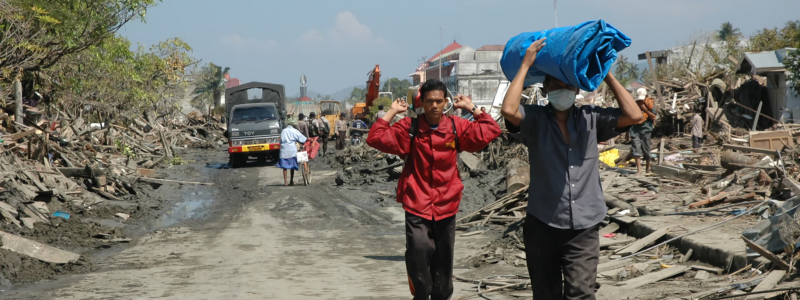When people think of humanitarian crisis relief, such as earthquakes (Christchurch, New Zealand 2011), war, disease, and even economic crises—such as in Venezuela, where the healthcare infrastructure has been steadily eroded—their first thought is often about the provision of food, water, and medical supplies.
Hygiene supplies, however, are just as critical.
During times of crisis, the role of companies like Pacific Hygiene becomes crucial. Our provision of essential products such as rubbish bags, gloves, soap and anti-bacterial sanitisers, wipers, facemasks and sanitary bins is instrumental in treating the sick and injured, ensuring the safety of relief workers, and preventing the spread of disease and bacteria.
A good example is the late 2023 flooding crisis in Havana, Cuba, which killed people and destroyed or damaged infrastructure like homes, roads, and access to drinking water. UNICEF (United Nations Children's Fund), funded by the Government of Korea, was able to provide medicine and hygiene kits to support the recovery of affected communities.
Communicable diseases
Where there is a humanitarian crisis, there is a high risk of communicable diseases like diarrhoea, malaria, measles, respiratory infections and infections from injuries and wounds. Essentially, products and services provided by companies like Pacific Hygiene, from personal care items to cleaning and sanitation supplies, are not just conveniences but a critical necessity to safeguard public health, prevent the spread of diseases, and provide a sense of normalcy amid chaos.
The risks of infrastructure collapse
In the aftermath of natural disasters, conflicts, or pandemics, the infrastructure that supports normal living conditions often collapses. Access to clean water can become scarce; sanitation systems may be destroyed or overwhelmed--sewage flooding homes and streets--and the risk of disease outbreaks increases significantly.
Similarly, in refugee camps, where displaced populations might live in close quarters with limited access to clean water, personal hygiene items such as soap, menstrual hygiene products, and container products—and the safe disposal of waste—ensure basic hygiene needs are met, reducing the risk of disease spread.
Mental health
Hygiene plays a vital role in preserving human dignity as much as possible. People who can wash and maintain some semblance of cleanliness are shown to gain confidence and pride. People who feel dirty or unhygienic can struggle with mental health issues.
The psychological impact of having access to hygiene products should not be underestimated; during times of upheaval, maintaining personal cleanliness and dignity can provide a sense of normalcy and control to individuals who have lost so much. This psychological benefit, in turn, supports overall well-being and resilience in affected populations.
Hygiene products as a cornerstone
The ability to distribute products widely and rapidly means that communities, healthcare facilities, and emergency response teams can maintain higher hygiene standards. Hygiene is a cornerstone in the fight against disease and infections and the race to minimise the death toll with all that is humanly possible.
Hygiene producers, often unseen and never heroes, provide a critical line of defence against the spread of diseases, support public health, and, most importantly, uphold human dignity in terrible circumstances.
The importance of hygiene products extends beyond humanitarian crises because, even in normal circumstances, they are essential for maintaining a clean, healthy, and well-functioning society.
Beyond Food and Water: The Hygiene Imperative

